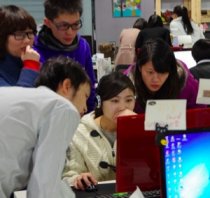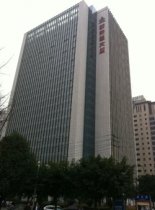Foreign startups Silicon Valley
 Silicon Valley is full of foreign startups that are headquartered overseas but set up offices in the Bay Area, usually to gain access to the Valley's funders and the U.S. market in general. But very rarely do you see a U.S. startup that's headquartered in Silicon Valley but goes overseas to set up a core part of its operations.
Silicon Valley is full of foreign startups that are headquartered overseas but set up offices in the Bay Area, usually to gain access to the Valley's funders and the U.S. market in general. But very rarely do you see a U.S. startup that's headquartered in Silicon Valley but goes overseas to set up a core part of its operations.
That, however, is exactly what tech veteran Jason Johnson did earlier this year when he cofounded Blue Sprig, a company that builds smartphone security and maintenance apps. (Think McAfee for the iOS and Android set.)
This is no typical outsourcing story. A serial entrepreneur and former Dolby Laboratories executive, Johnson actually joined forces with a Chinese entrepreneur and cofounded a company together, setting up their entire engineering team in that country and leaving only Johnson, the company's CEO, and a business development executive in San Francisco.
 Six months later, Blue Sprig has million in A-list funding and a suite of products on the market-both of which Johnson tells Fast Company were made possible by bucking the Silicon Valley tendency to look inward.
Six months later, Blue Sprig has million in A-list funding and a suite of products on the market-both of which Johnson tells Fast Company were made possible by bucking the Silicon Valley tendency to look inward.
Earlier this year, Johnson, who cofounded Founders Den, the invitation-only startup co-working space in San Francisco, was thinking about launching a new company. The startup he cofounded last year, Rethink Books, which has an app that helps consumers discover new things to read, was humming along nicely, and Johnson was ready to roll up his sleeves on a new venture. But being a business guy, he knew he would need a technical partner to move forward on any new idea.
"In Silicon Valley, it's becoming more and more difficult to find highly talented people, " Johnson says. The competition for engineers has been widely reported. Less well known, however, is how difficult it is to find a CTO.
 Since it's comparatively easy to start a company today-you don't need a lot of capital to prototype an idea and see if it has legs-“to try to find a cofounder who's waiting around for you, they're becoming fewer and far between, " Johnson says.
Since it's comparatively easy to start a company today-you don't need a lot of capital to prototype an idea and see if it has legs-“to try to find a cofounder who's waiting around for you, they're becoming fewer and far between, " Johnson says.
When a mutual acquaintance introduced Johnson to Hugo Dong, a entrepreneur based in Chengdu with a track record of building PC security products for the Chinese market, Johnson realized he'd met his partner. The two had complementary skills and similar ambitions and outlooks.
"I felt like he was like a version of myself, but in China, " Johnson says.
Dong had plenty of experience setting up companies in China, so the two decided to locate the company's development center in Chengdu, whose skyscrapers like the one at right (which houses Blue Sprig) are full of Chinese software companies as well as the local offices of U.S. tech companies. Dong hired all 13 of Blue Sprig's developers (pictured) locally.
The company isn't a joint venture. It's a U.S. startup headquartered in California, and its Chengdu office is like the overseas office of any other American company-simply an extension of domestic operations.
The idea of having virtually his whole company located halfway around the world never phased Johnson. He'd overseen marketing for a global business unit while at Dolby and had previously worked for a company headquartered in Sweden. Working with international colleagues was second nature. And the setup had many advantages.
You might also like
#CPHFTW goes live - becomes more than a meetup — ArcticStartup
.. something that can benefit all startups, both big and small. -. This article is in collaboration with Øresund Startups, originally by Karsten Deppert and covers news about startups and events from the startup scene.
|
|
The Silicon Valley Way, Second Edition: Discover 45 Secrets for Successful Start-Ups Book (Energy House Publishing)
|



